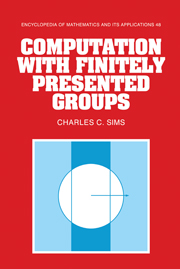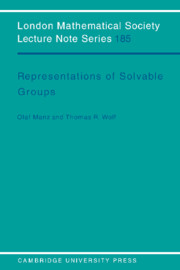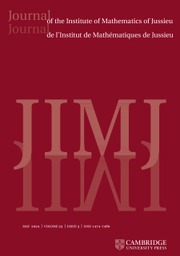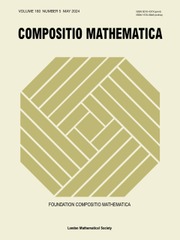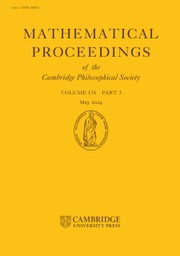Computation with Finitely Presented Groups
The book describes methods for working with elements, subgroups, and quotient groups of a finitely presented group. The author emphasizes the connection with fundamental algorithms from theoretical computer science, particularly the theory of automata and formal languages, from computational number theory, and from computational commutative algebra. The LLL lattice reduction algorithm and various algorithms for Hermite and Smith normal forms are used to study the Abelian quotients of a finitely presented group. The work of Baumslag, Cannonito, and Miller on computing non-Abelian polycyclic quotients is described as a generalization of Buchberger's Gröbner basis methods to right ideals in the integral group ring of a polycyclic group.
- Comprehensive text presenting fundamental algorithmic ideas which have been developed to compute with finitely presented groups
- Emphasises connection with fundamental algorithms from theoretical computer science
- Comprehensive, yet accessible to graduate students
Reviews & endorsements
"this book is a very interesting treatment of the computational aspects of combinatorial group theory. It is well-written, nicely illustrating the algorithms presented with many examples. Also, some remarks on the history of the field are included. In adition, many exercises are provided throughout...this is a very valuable book that is well-suited as a textbook for a graduate course on computational group theory. It addresses students of mahtematics and of computer science alike, providing the necessary background for both. In addition, this book will be of good use as a reference source for computational aspects of combinatorial group theory." Friedrich Otto, Mathematical Reviews
Product details
January 1994Hardback
9780521432139
624 pages
241 × 160 × 33 mm
0.975kg
Available
Table of Contents
- 1. Basic concepts
- 2. Rewriting systems
- 3. Automata and rational languages
- 4. Subgroups of free products of cyclic groups
- 5. Coset enumeration
- 6. The Reidemeister-Schreier procedure
- 7. Generalized automata
- 8. Abelian groups
- 9. Polycyclic groups
- 10. Module bases
- 11. Quotient groups.

